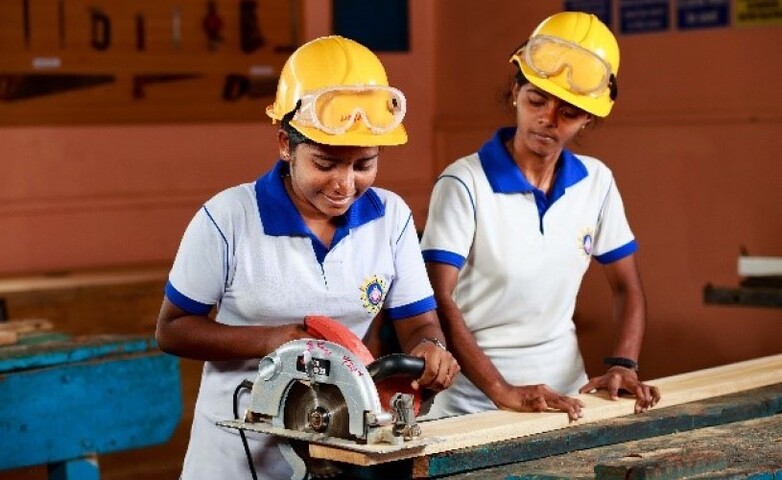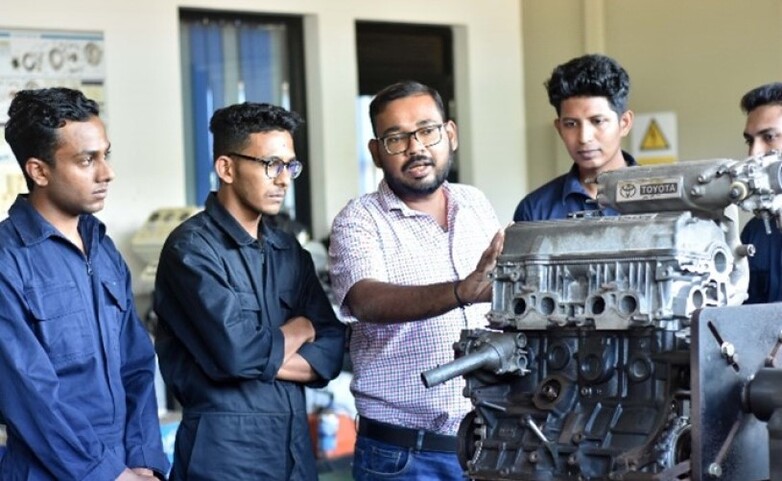Improving the quality of vocational training in Sri Lanka
Vocational Training in Sri Lanka (2023-2026)
-
Commissioning Party
German Federal Ministry for Economic Cooperation and Development (BMZ)
-
Country
-
Lead executing agency
More
-
Overall term
2023 to 2026
-
Products and expertise
Economic development and employment

Context
Sri Lanka’s economy has witnessed major setbacks during the crises of recent years. Its revitalisation and enabling the ecologically sound transformation of the economy will remain a priority for Sri Lanka in the coming years. Brought about by the effects of the economic crisis, the shortage of skilled labour has been exacerbated by the massive increase in labour migration and is a major obstacle to the revival of the national economy. The creation of income and employment prospects for all population, including disadvantaged groups, will play an important role in the efforts to bring economic stability to the country.
Despite reforms in recent years and past successes, vocational education and training remains insufficiently oriented towards labour market and ecological needs. Particularly young women, youth from rural areas, members of religious minorities as well people with disabilities have limited access to vocational training and employment.
Objective
The quality of vocational training for all population groups in terms of labour market relevance, accessibility and ecological sustainability is improved.

Approach
The project cooperates with the Ministry of Education, the vocational training authorities and two model schools established with German support, namely the Sri Lanka German Training Institute (SLGTI) in Kilinochchi and Ceylon German Technical Training Institute (CGTTI) in Moratuwa. Activities focus on the following areas:
- Developing innovative training concepts with private companies and digitalising vocational training offers, as well as further training management, technical and teaching staff.
- Adapting training content and creating new training and further education programmes with a focus on ecological aspects (e.g., electromobility, renewable energies).
- Employment- and income-generating training measures for disadvantaged population groups.
Last update: June 2023






